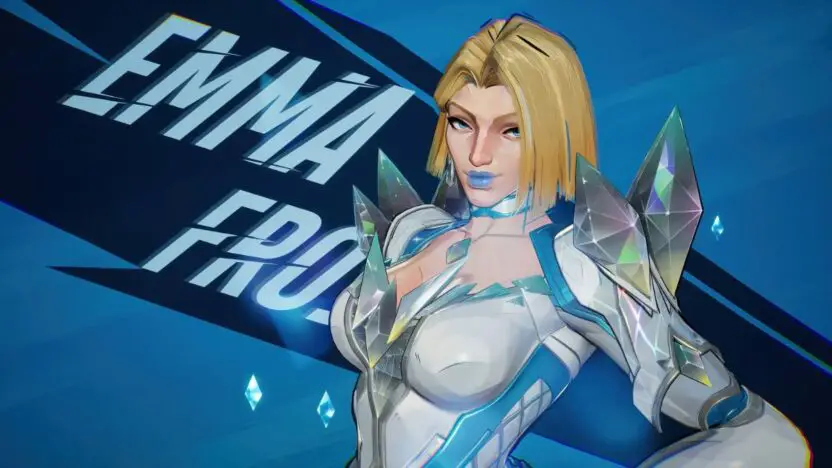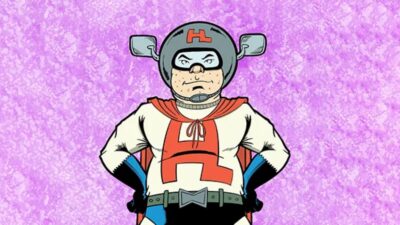Emma Frost, also known as the White Queen, is one of Marvel Comics’ most complex and intriguing characters. Known for her icy demeanor, immense psychic power, and role as both a villain and hero, her backstory—particularly as depicted in X-Men Origins: Emma Frost—is as tragic as it is empowering. As she makes her appearance in Marvel Rivals, let’s take a deep dive into The Tragic and Powerful Origin of Emma Frost in Marvel Comics and explore how a young girl from a toxic home grew into a dominant force in the Marvel Universe.
Emma Frost: A Troubled Beginning
Emma’s story begins in a place of unexpected vulnerability—a cabaret. She works as a stripper at the Hellfire Cabaret, though it’s clear she’s not particularly celebrated for her talents. The crowd sees her as nothing more than a body, chanting for her to take it all off. In a moment of humiliation and rage, she lashes out telepathically, unleashing a psychic blast on the entire room.
This scene is the catalyst that takes readers back into Emma’s past, highlighting the early moments where her powers first began to manifest—always during times of intense stress and emotional turmoil.
Mutant Powers Under Pressure
In the world of mutants, powers typically manifest during puberty or moments of high emotional duress—sometimes both. For Emma, these incidents of psychic outbursts occurred when she was overwhelmed or under threat. These moments became critical in shaping who she was, as she had little control over her growing abilities.
Emma’s past is laced with trauma. Her home life is the textbook definition of toxic, with her father, Winston Frost, being cold, abusive, and emotionally cruel. In one telling moment from her childhood, Emma is simply reading “Sleeping Beauty” to her dolls—a harmless act of imagination. But her father storms in, belittling her, calling her lazy, weak, and a disgrace to the Frost name. He compares her unfavorably to her sister Adrien, saying she should focus on becoming “pretty” rather than indulging in “foolish play.”
A Family Rooted in Pain
The comic briefly touches on Emma’s siblings—Adrien, Cordelia, and Christian. Though this particular story focuses on Emma alone, it’s worth noting that all of them, like her, are mutants. Christian, in particular, struggled with the suffocating expectations of their father and eventually turned to substance abuse. His emotional unraveling led to the ultimate family tragedy: Christian killed their father, Winston.
Despite this layered family dynamic, the story hones in on Emma’s personal battle. Her mother, while not actively cruel, enables Winston’s behavior. When Emma confides in her about the emotional abuse she’s facing, her mother simply tells her that it’s “just his way” and that it means he loves her the most. Whether that’s true or simply a coping mechanism from a resigned woman, it’s clear Emma grows up in a house where emotional neglect is normalized.

High School Humiliation and Awakening
As she grows older, Emma continues to face challenges—especially in school. By ninth grade, she’s navigating the awkward and brutal social structures of high school. Like many teens, she yearns for acceptance, not yet understanding that the world extends far beyond peer approval.
A rare bright spot comes when she writes an outstanding term paper and gets the chance to read it aloud to the class. But what should be a triumphant moment is soured by her jealous peers, who ridicule her. Worse yet, when she shares the experience with her family, her father brushes it off as meaningless, belittling her again. His words are biting: “If you fail, they will mock you. If you succeed, they will be jealous and seek to tear you down. The only goal worth seeking is power over others.”
Emma, frustrated and hurt, finally rebels. She tells him she doesn’t want to be a Frost anymore—just a normal person. His reply? “You will never be like everybody else. Your money, your family, your DNA sets you apart.”
Winston’s belief in class superiority (not mutant superiority) reveals the toxic elitism he lives by. He’s a high-ranking member of the Hellfire Club, and though he’s not a mutant himself, he sees the world in black and white: the powerful and the powerless.
A Cruel Prank and a Psychic Explosion
Emma’s turning point comes during another humiliating moment at school. After a seemingly kind gesture from classmates, she finds a note planted in her bag that viciously mocks her appearance and implies her father has to buy her a boyfriend. The stress pushes her over the edge.
In a scene reminiscent of Carrie, Emma’s powers explode outward, sending a massive telepathic wave through the entire school. No one is seriously harmed, but it marks the first time she consciously realizes that her migraines and emotional outbursts are tied to something deeper—mutant powers.
Enter Charles Xavier
Word of Emma’s psychic blast travels fast, eventually drawing the attention of Professor Charles Xavier. At this point in the Marvel timeline, Xavier is working with Moira MacTaggert and is already recruiting young mutants to join his school for gifted youngsters.
Xavier, true to form, arrives quietly and begins reading Emma’s thoughts before even making his presence known. This is a tactic he developed after his early experience with the Shadow King—one of the first and most dangerous telepaths he ever encountered. That encounter taught Xavier to be cautious, to assess a mutant’s character before approaching them.
Through telepathy, Xavier gently reaches out to Emma while she lies in bed, terrified that the authorities might be coming for her. He tells her he knows what happened and that she isn’t in trouble. He offers her a place at his school, a chance to learn, control her powers, and be among others like herself.
But as expected, Winston Frost is dismissive. He arrogantly denies Xavier’s offer, insisting no stranger knows his daughter better than he does. Emma, eavesdropping telepathically, is offered an opportunity by Xavier—he could change her father’s mind using his powers. But Emma refuses. “Do not touch my father.”
Power, Control, and Emma’s Evolution
Despite everything, Emma chooses to stay. The approval of her father still holds power over her, even though he has never given her any real love or support. In that moment, she realizes something critical: she has power. She could burn her father’s mind, leave him helpless, and never be hurt by him again. But she doesn’t.
Her inner reflection is telling: “How is that any different than what you would do?” It’s a key moral distinction that sets the tone for who Emma will eventually become. She won’t use her powers to destroy—but she will use them to protect and control.
This moment plants the seed of Emma’s future identity—not as a pawn of Xavier or a victim of her father, but as someone who takes control of her life on her own terms.

Emma Frost vs. Jean Grey: Power with Purpose
A major takeaway from Emma’s story is the contrast between her and Jean Grey. Both are powerful psychics, but Jean’s power continues to evolve because she constantly uses it for the greater good—fighting evil, saving people, and being pushed to her limits. Emma, on the other hand, uses her powers for manipulation and self-preservation.
This distinction limits Emma’s growth in some ways, but also defines her unique place in the Marvel Universe. She’s not a hero in the traditional sense, but she’s not a villain either. Her complicated morality, shaped by a lifetime of trauma and survival, makes her fascinating.
Full Circle: Back to the Hellfire Cabaret
The comic eventually circles back to the present, where Emma is once again at the cabaret, booed and heckled. But now, readers understand the full weight of her journey. She didn’t start as the polished, confident White Queen. She was a girl shaped by cruelty, self-doubt, and pain. And she clawed her way to power—not through luck or privilege, but through grit and a relentless refusal to be broken.
Also Read: Batman the Dawnbreaker: The Story Where Batman Kills the DC Universe



